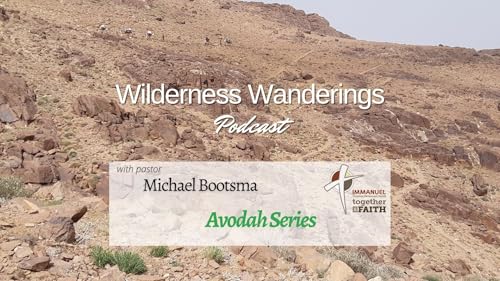
Creation Rhythm
Échec de l'ajout au panier.
Échec de l'ajout à la liste d'envies.
Échec de la suppression de la liste d’envies.
Échec du suivi du balado
Ne plus suivre le balado a échoué
-
Narrateur(s):
-
Auteur(s):
À propos de cet audio
Our text is Exodus 34:21:
Six days you shall labor, but on the seventh day you shall rest; even during the plowing season and harvest you must rest.
In the shadows of Mount Sinai, Israel made a choice defining her values as a nation. She chose to trust the God who created heaven and earth and to trust the reliability of the creation. The people also chose to shun the anxiety that comes from a lack of confidence in the goodness of the creator and the goodness of creation. They chose to follow the God who rests.
But that choice was difficult to maintain. The covenant is confirmed in Exodus 24, but by Exodus 32, Moses has been on the mountain for 40 days. They are not convinced he will return, and God seems extremely distant. As such, they return to anxiety. What do they do in their anxiety? They make their own god, of course, just like we do.
Their god was made of gold. Our gods are less tangible: money, production, consumerism, entertainment, knowledge, psychology, sports, even religious rituals. They assumed that they could somehow purchase security. Don't we do the same. Trusting our own resources to solve our problems.
When Moses returns, he smashes the stones with the commandments into dust. The covenant lies dissolved at the foot of the mountain. God is rightfully angry, but Moses intervenes, and God does something astonishing: he forgives. He says, "I am making a covenant with you. Before all your people I will do wonders never before done in any nation in all the world. The people you live among will see how awesome is the work that I, the Lord, will do for you" (Exodus 34:10).
Then he gives them new commandments, similar but different than the ten. These include this, "Six days you shall labor, but on the seventh day you shall rest; even during the plowing season and harvest you must rest" (34:21). Growing up in the agricultural sector, I remember the pressure to work in spring and fall when crops needed to be sown and harvested. There is always work to do. The pressure to produce rarely subsides.
It's not easy to let go of our anxiety that production depends on us. This command to rest concerns the human work of exercising "dominion" over the earth to cause it to produce. Sabbath interrupts the productive, food-producing creation system in which we must participate. It's an invitation to trust the land—creation and its creator—enough to rest, even in the busy agricultural seasons of sowing and reaping.
Our lives should conform to the rhythms of creation, work and rest in appropriate amounts. When we are in sync with that, we train our bodies away from the anxiety production causes in us. Resting teaches our bodies to trust in God; our minds and our souls will catch up if we live the rhythm.
As you journey on, go with this blessing:
Go to Jesus and he will give you rest and an easy yoke (Matthew 11:30). May the presence of God go with you and give you rest (Exodus 33:14).



